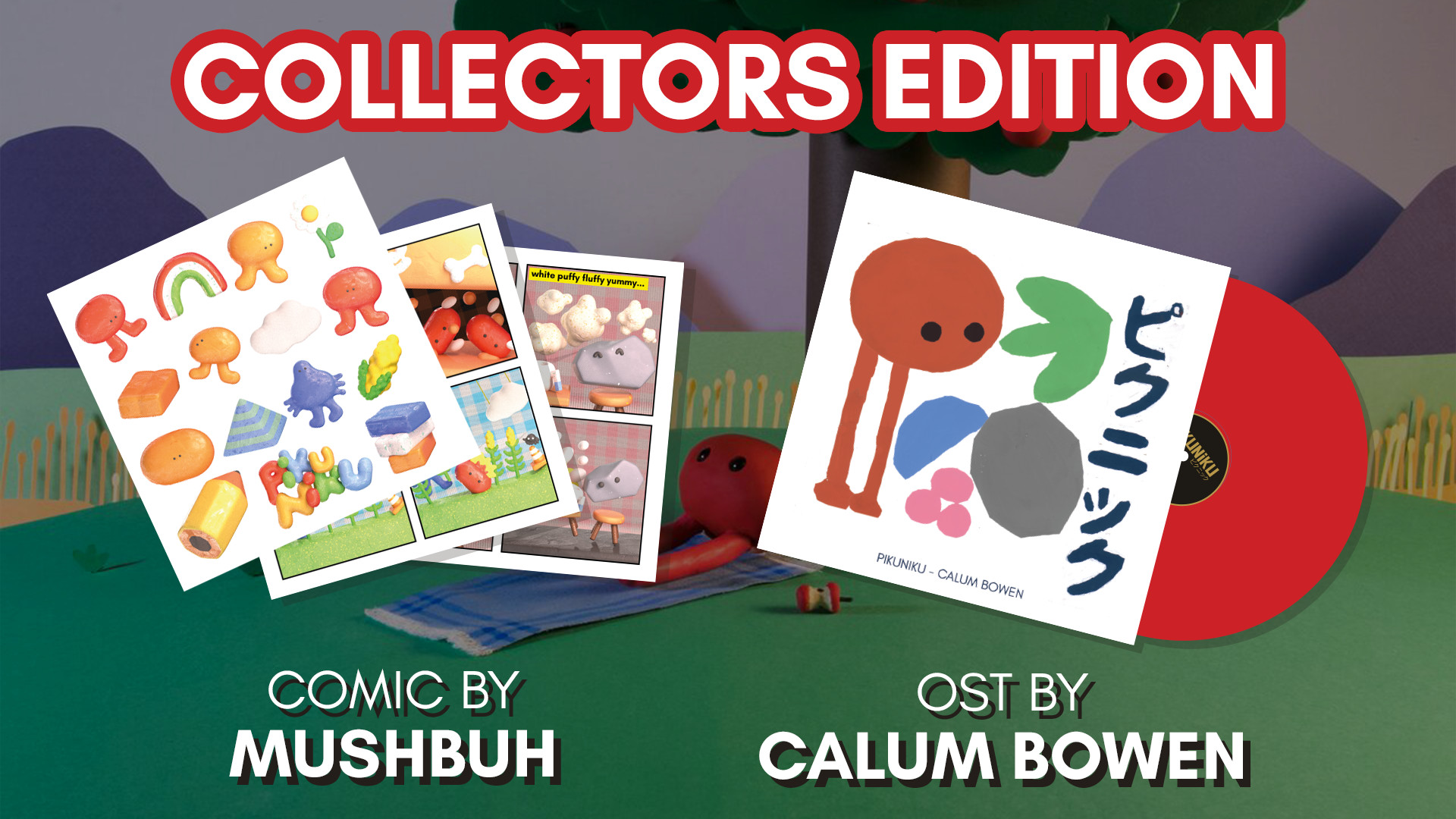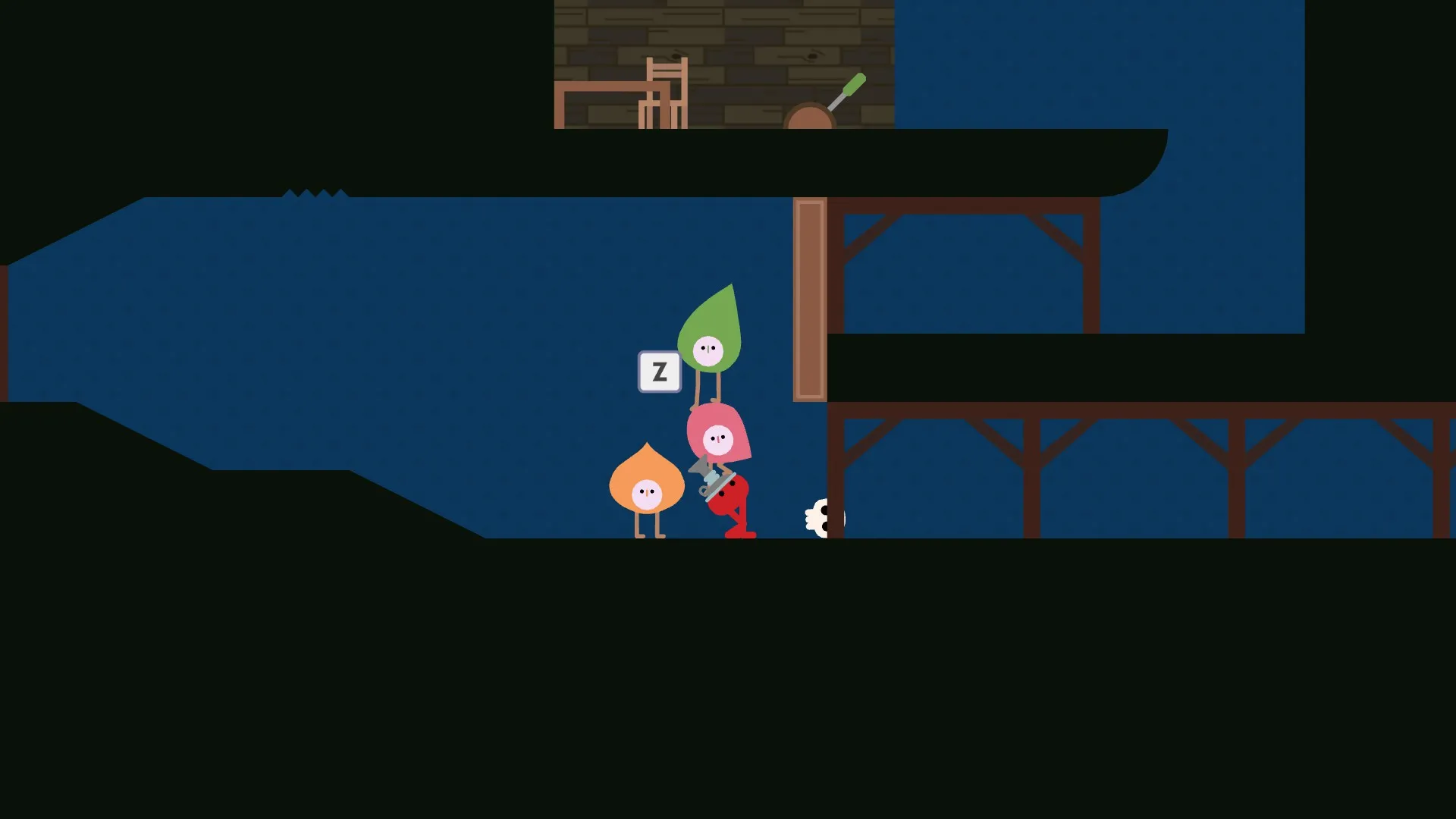

Like in the best parts of said OST, Pikuniku’s eclecticism works styles and beats (that jazzy techno drop in “The Maze (Co-op 6)!) into a simple catchiness no longer easily found in videogame music. From the tranquility of “The Crate (Co-op 1)” to the hip hop punch of “Rope Fall (Co-op 4)”, the strength of this whole part comes from its subtleties as well as from the ways in which it effectively reproduces the ‘cool’ spirit of friendly competition and collaboration from 90s soundtracks like that of Sonic 3. This is best represented in the last part of the album, dedicated to the co-op gameplay sections, in which the presence of another player is a motive to both spend a few thoughtful moments as well as raucous ones. But “not everything is as happy as it seems”, says the press release, reflected in the very subtle introduction of sad and contemplative tones amidst all those dance beats. This allows Bowen to focus on the melodies, most of which, Kondo-style, are sourced from slightly modified Latin rhythms (think bossa, samba, even a barely recognizable reggaeton drum sequence in “Free Money!”), lending the album an overall consistency without sacrificing each track’s separate identity.

The game’s aesthetic is a mixture of cutesy children’s cartoons and minimalist animation, with the music cheerily following suit, every piece a sort of self-contained scenario instead of having an overarching structure. Smile, and let yourself become one with the sun.ĭid you ever stay for a while in the town scenes of the various Final Fantasies, or the shops of Zelda games, just to listen to the music? Pikuniku builds relaxing aural themes indebted to all those happy little tunes that represented sanctuaries from grand dramatic quests, spicing things up with dashes of Latin rhythms and lullabies in the best Kondo tradition.


The music perfectly fits the tone of a game modeled to tell a fairy tale set inside a colorful forest seemingly straight out of a children’s illustration book, the closeness and simplicity of nature at the heart of folk music coinciding with the view of a harmonious collectivity and communal sense of the natural evoked by gamelan orchestras. The musicians very ably transition from one style to the other, effectively blending the serene, long development of gamelan-like melodies with the emotional immediacy of folk guitar picking tracks like “Rikala”, which add a few extra electronic effects, round out the experience of a sweetly moving meditation. The traditional complexity of the gamelan’s melodies and harmonies is essentialized by acoustic guitar techniques, the bell-like highs and the drumming lows turned into quick riffs and strumming taps. What makes it interesting is the way in which it borders easy-listening, utilizing the clichés of light folk music to subject them to the structures of gamelan orchestration. The development of the album is quite simple, with a handful of variations upon a few key themes that evolve subtly into complementary emotional directions.
Pikuniku ost full#
Hailing from Surabaya, Indonesia, composer Masdito Bachtiar and neo-folk group Pathetic Experience have created an uplifting soundtrack in She and the Light Bearer, full of cute and optimistic music that at times reminds me of the pretty parts of The Observatory’s friendliest songs. Without violations.Masdito Bachtiar, Pathetic Experience & Christabel Annora ~ She and the Light Bearer Notice, Bandcamp gives you opportunity to freely listen to this album. Prices and shops where you can buy it are at the right column. Support composers, artists and performers so they can release more music in the future. If you like Pikuniku Original Soundtrack, we strongly recommend to buy it. Soundtrack consists of 45 tracks tracks with duration over more than hour. Album was composed by Calum Bowen and was released on January 24, 2019. Here you can freely listen to preview tracks from Pikuniku Original Soundtrack.


 0 kommentar(er)
0 kommentar(er)
